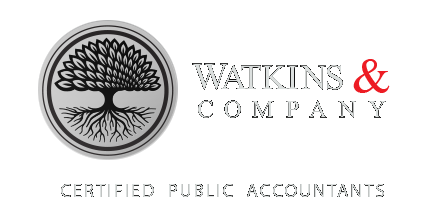Everything You Need to Know About 1099s in 2024
For those operating businesses where independent contractors or other non-traditional income payments are being made, 1099s are how you will report income paid to individuals or entities during the tax year. The main purpose of a 1099 is for the IRS to track income that falls outside of the scope of traditional taxes. Businesses, organizations, or individuals are responsible for issuing 1099s if they make such income payments. Similarly, individuals are required to file taxes with a 1099 if they made any income that is not reported under a W-2 or other tax reporting form.
Common Types of Forms 1099
There are various types of 1099s, each utilized to report a different category of earnings.
- 1099-NEC: This form is used to report payments made by a business to those who are not business employees, such as freelancers or independent contractors. The NEC is used when the payments exceed $600. This was reintroduced in 2020 to streamline and simplify tax reporting for income made by independent contractors and freelancers.
- 1099-MISC: This form is used to report income categories that don’t fall under any other traditional tax form, including rent, prize money, royalties, etc. Previously, this form was also used for independent contractors, however, changes in 2020 were made and now this income is reported in a 1099-NEC.
- 1099-INT: The primary purpose of this form 1099 is to report income earned from savings accounts or other investments.
- 1099-DIV: This form is used for tax reporting purposes from income made though dividends and distributions from investments.
As with any tax reporting, 1099 laws and regulations change consistently. It’s vitally important that businesses and individuals stay abreast of changes with Forms 1099 to ensure compliance with tax regulations. The most effective method of ensuring you remain in complete compliance is to see a tax professional at Watkins & Co. Our experienced CPAs can guide you through the ins and outs of any 1099 you may be issuing or filing so that you can rest assured you have met all regulation expectations.
1099 Filing Deadlines and Penalties
As with all income reporting, one of the most important aspects of any tax reporting, including Forms 1099 is to meet filing deadlines. In most cases, businesses must provide 1099s to recipients by the end of January for the previous tax year. Then the individual must file by either the end of February (if filing in paper form) or the end of March (if filing electronically). If these regulations are not met, you may face expensive fines and penalties for yourself or your business.
1099 Reporting Requirements Mississippi
It can be a daunting task to ensure that you’re meeting all the IRS regulations and are properly reporting all income. By understanding the various Forms 1099, you can be sure that your business is in compliance with all tax reporting requirements. Individuals can also rest easy knowing that you’re meeting all deadlines and avoiding potential complications or costly penalties by complying with the IRS’s tax reporting regulations.
Still a little confused or stressed? Leave it all to us! Watkins & Co. has all the expertise and knowledge you’ll need to navigate the tax season with ease, no matter how complicated your financial situation may seem. Give us a call or click today to contact us and learn more about how we can help you work through proper tax reporting!





